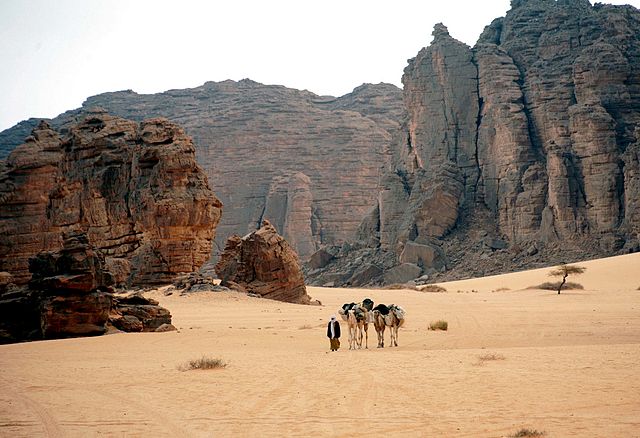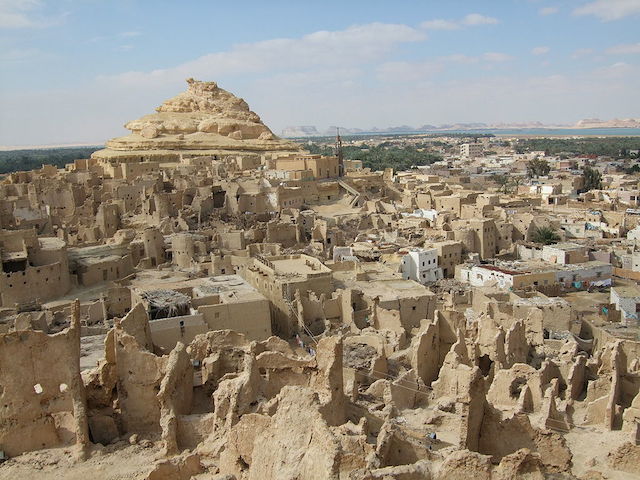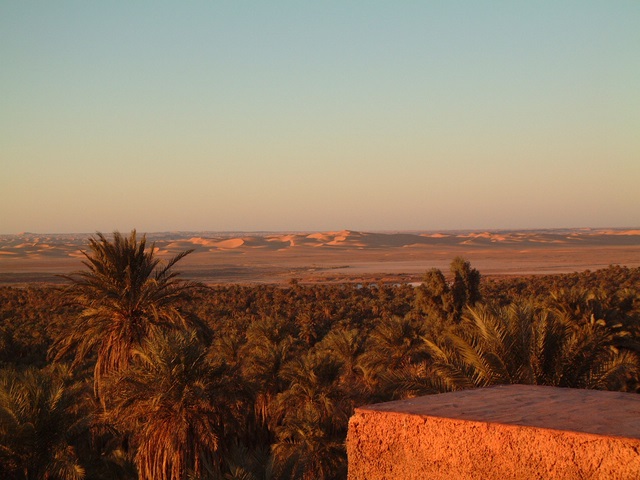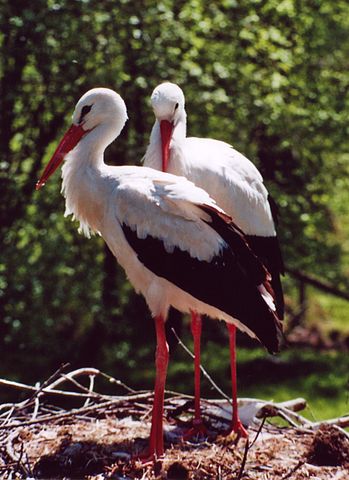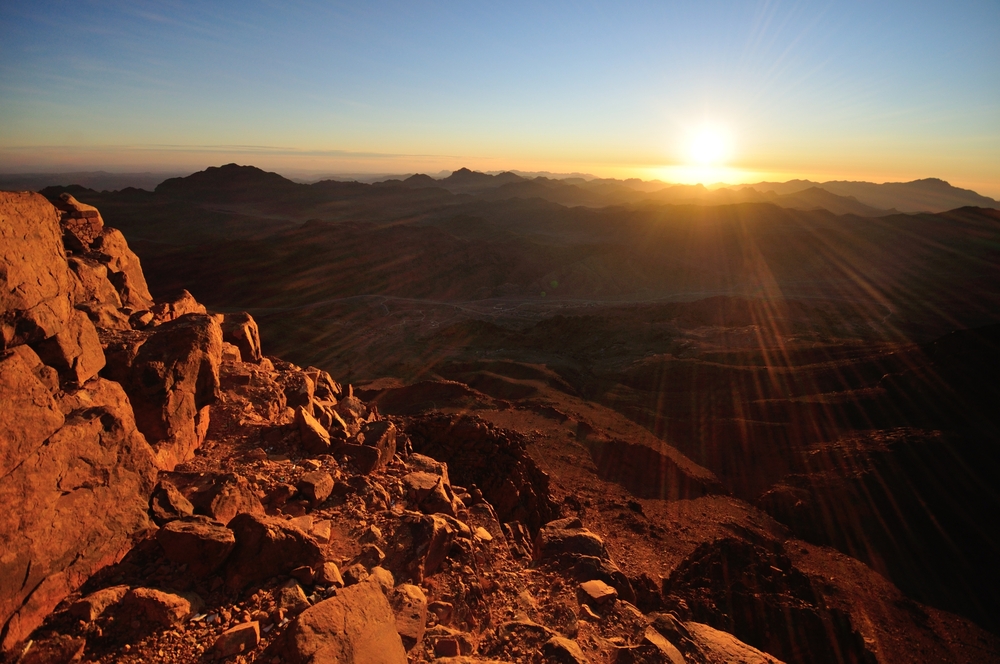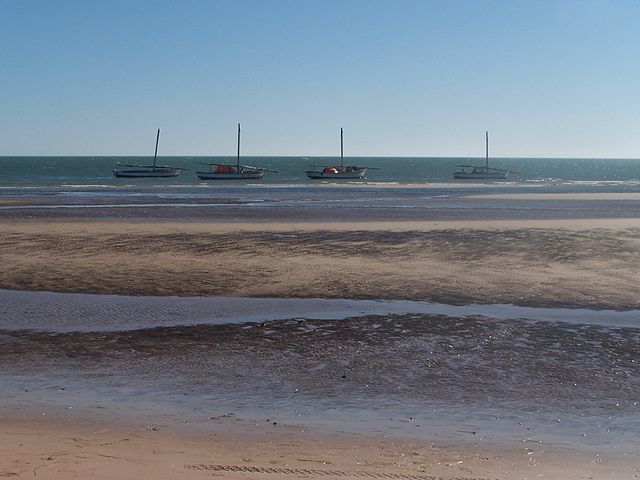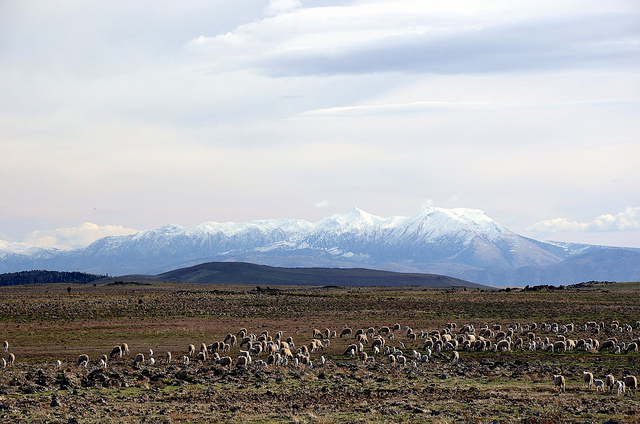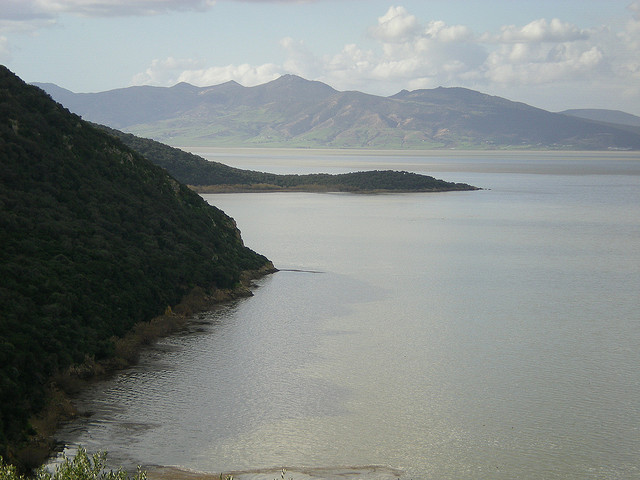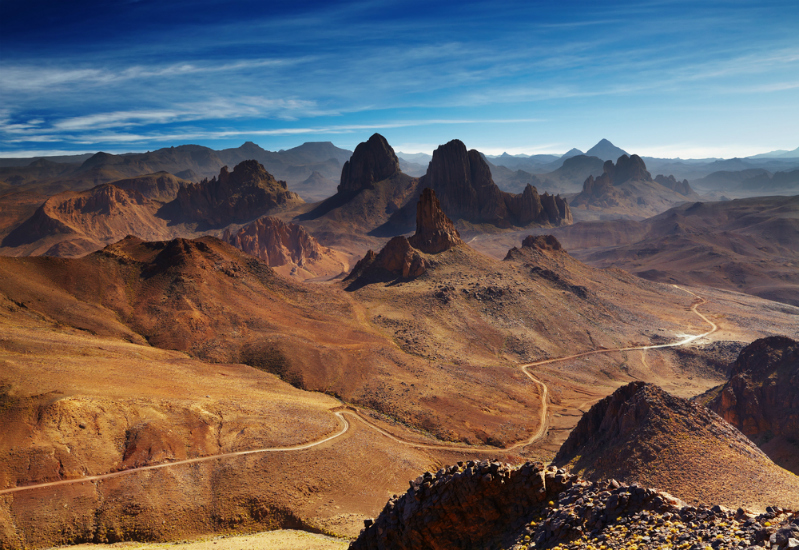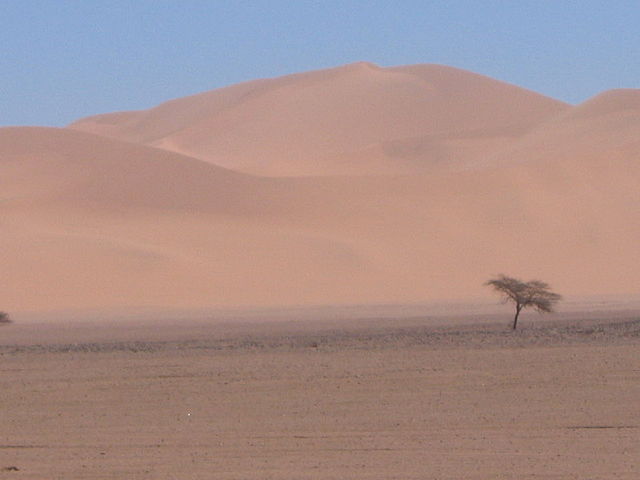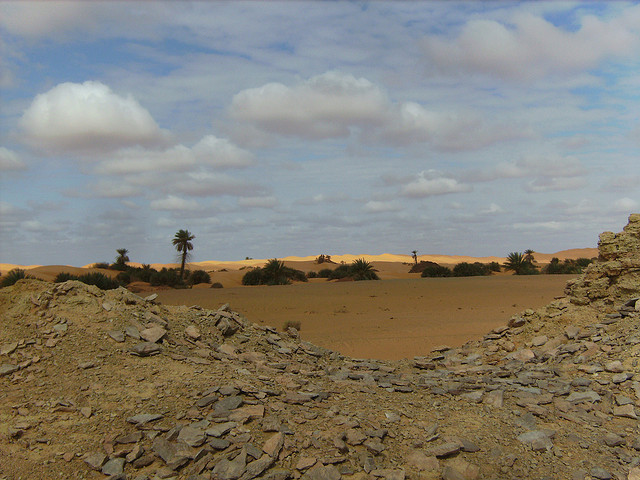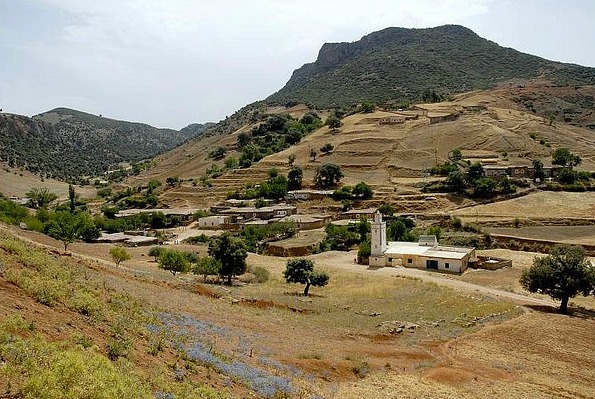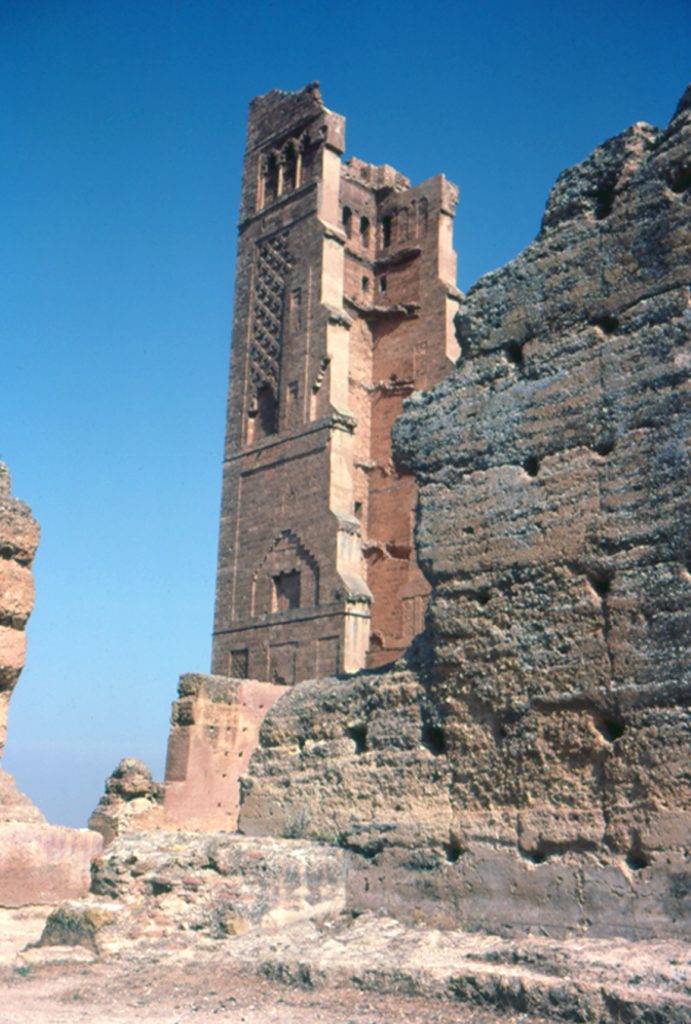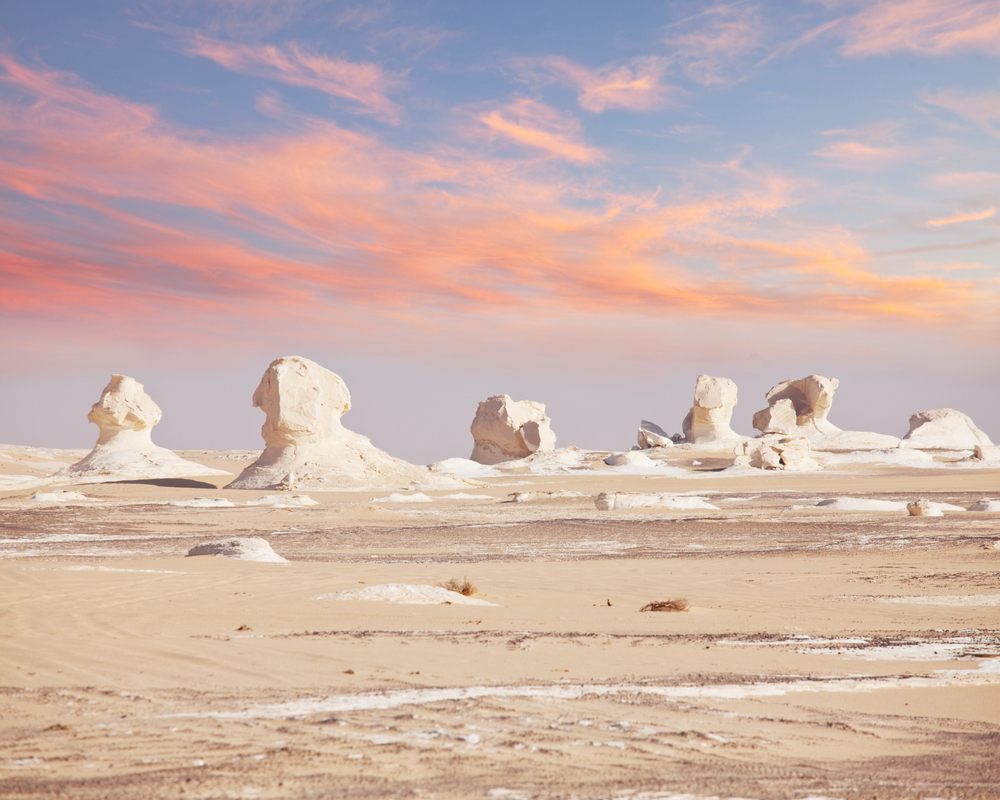North Africa isn’t as well known for its national parks as some other places on the continent. But that doesn’t mean it should be discredited — some of the most stunning landscapes and biodiverse areas can be located within the countries that make up the majority of the Sahara. From lush wetlands, to rocky mountains, to sand dunes, North Africa has flora, fauna, and landscapes that can be found nowhere else in the world, let alone continent. Here are the 15 best North African national parks.
1) Tassili n’Ajjer National Park, Algeria
One of the most dramatic places on the African continent, Tassili n’Ajjer is a national park in the extreme south of Algeria noted for its breathtaking sandstone arches and prehistoric rock art. A UNESCO World Heritage Site, several oases dot the area and it is one of the most popular tourist excursion for those who make it so far south. The lunar like landscape and sparse vegetation will continue to attract visitors for years to come.
2) Siwa Oasis, Egypt
Set deep in the western desert, the town of Siwa rises like a green and white mirage out of the vast sands of the Sahara. Possibly the most isolated settlement in the country, the oasis is home to Berbers. Olives and dates are cultivated here and Siwa is home to several important cultural festivals. Needless to say, it is one of the most interesting places in the country and a great place to escape the crowds of Egypt’s historic monuments and get back to nature.
3) Toubkal National Park, Morocco
Set in Morocco’s stunning Atlas Mountains, Toubkal National Park is one of the most popular in Morocco. It helps that it also features the country’s tallest peak, the eponymous Mount Toubkal which is a dizzying 4,167 meters (13,671 feet). Popular with trekkers and climbers, the park has plenty of other rugged mountains capped with snow most of the year and great hiking, not to mention wildlife.
4) Jebil National Park, Tunisia
While only 20 years old, Jebil National Park is the largest in Tunisia and covers over 150,000 hectares taking up a substantial portion of the south of the country. With sparse vegetation and gorgeous Saharan landscapes, camels, gazelles, hares, jackals, snakes, and other animals can be found here. The park is a great way to experience the natural side of Tunisia as the northern part of the country focuses on Mediterranean towns and Roman ruins.
5) El Kouf National Park, Libya
Unfortunately off limits at the moment due to the instability of Libya, El Kouf is one of the best parks in the country. Set on Libya’s Mediterranean coast, the park is rich in flora and fauna, featuring all types of mammals and dozens of species of birds. Shrubland, sand dunes, and limestone hills contain 90% of all plant species found in the country. Hopefully, peace returns and visitors will be allowed to appreciate El Kouf’s unique ecosystem.
6) St. Catherine’s Monastery/Mount Sinai, Egypt
Mount Sinai and St. Catherine’s Monastery are two of the most important sites in Egypt. Located in the rugged mountains of the Sinai Desert, Mount Sinai stands 2,285 meters (7,500 feet) and is usually summited by climbers just before dawn for breathtaking sunrises over the surrounding desert. In the shadow of the peak is St. Catherine’s Monastery (a UNESCO site that combined with Mount Sinai) is one of the most famous religious sites of the Abrahamic religions.
7) Banc d’Arguin National Park, Mauritania
Set a bit south and wayyy west than most of the other parks on the list, Banc d’Arguin National Park is the most important in Mauritania. The World Heritage Site is a crucial stopping point for migratory birds like flamingos, pelicans, terns, and sandpipers. With sand and shell dunes, fishing boats, and virtually no tourists, Banc d’Arguin is a very peaceful place in one of Africa’s less visited countries.
8) Ifrane National Park
Morocco has many national parks, but Ifrane is one of the most special, especially when it comes to wildlife. Located in the Moyen Range of the Atlas Mountains, the park was established to preserve the diminishing Atlas cedar forests. It’s also one of the last natural habitats for the Barbary Macaque which is now endangered. There are plenty of opportunities for hiking, fishing, and hunting partridge, boar, and hare. Plenty of people come to the area for skiing in the winter as well.
9) Ichkeul National Park, Tunisia
Ichkeul National Park takes its name from the lake that makes up a crucial part of this important wetland preserve. Similar to Banc d’Aguin, Ichkeul is an important stopover for migratory ducks, geese, storks, and flamingos. Construction of a dam has threatened the balance of the marshes, reeds, and other aquatic plant and animal life at this UNESCO Site, but thankfully, the Tunisian government is taking steps to maintain this ecosystem for generations to come.
10) Ahaggar National Park, Algeria
Returning to southern Algeria’s dramatic landscapes, Ahaggar National Park is mostly rocky, volcanic desert, but still hosts diverse flora and fauna. Like Tassili n’Ajjer, prehistoric rock paintings dating back thousands of years can be found, and French priest and missionary Charles de Foucauld constructed a simple hermitage in Assekrem which has become a point of pilgrimage for tourists visiting this surreal landscape.
11) Elba National Park, Egypt
At the extreme southeast corner of Egypt lies Elba National Park, one of the least visited places in the country. Partly due to its remote location and partly due to the disputed border with Sudan, Elba and its peak form a mist oasis, meaning that the freshwater in the area is collected in the form of dew and sitting clouds. With close to 500 plant species as well as animals, this park that dives into the Red Sea is worth the visit for its remoteness alone, if you can get there.
12) Zellaf Nature Reserve, Libya
Deep in the heart of the desert of western Libya lies the Zellaf Nature Reserve, one of the Sahara’s only nationally designated protected wildlife areas. Practically meant for camping, the 400 square miles consist of rolling sand dunes and rocky outcroppings with oryx, gazelle, and camels being the most common animals. Beautiful in its desolation, not many tourists have been here lately due to the political climate in Libya.
13) Tazekka National Park
Morocco is much more diverse than many people realize and Tazekka is a testament to that. Deep canyons, caves, streams, and waterfalls abound in this heavily wooded park set in the Middle Atlas Mountains. Ideal for hiking and camping on day trips from Fez, jackals, genets, hares, otters, porcupines, and Barbary wild boars are just a few of the creatures you may encounter trekking through the forests here.
14) Tlemcen National Park, Algeria
One of the richest national parks in Algeria, Tlemcen has over 140 species of animals including over 100 bird species. Natural caves, waterfalls, and forests can also be found here, along with historic mosques and mausoleums, including Sidi Boumediene Mosque which was built in the year 739 A.D.
15) White Desert, Egypt
Egypt’s western White Desert is another chief attraction when it comes to national parks. With only a few thousand inhabitants mostly clustered around the village of Farafra, chalk white rock formations contrast with golden Saharan sands which give the desert its name. The White Desert is not as rich in wildlife as some other parks but it is one of the most beautiful Saharan vistas to easily visit.
More from AFKTravel:
A Guide To Saqqara, Egypt, Resting Place Of Nobility
Beyond Merzouga: Cruising Morocco’s Erg Chebbi Dunes
15 Photos Of Tunisia That Will Make You Pack Your Bags
This article was originally published on February 19, 2015.
Want to discover the finer side of Africa? Sign up for our weekly newsletter.
